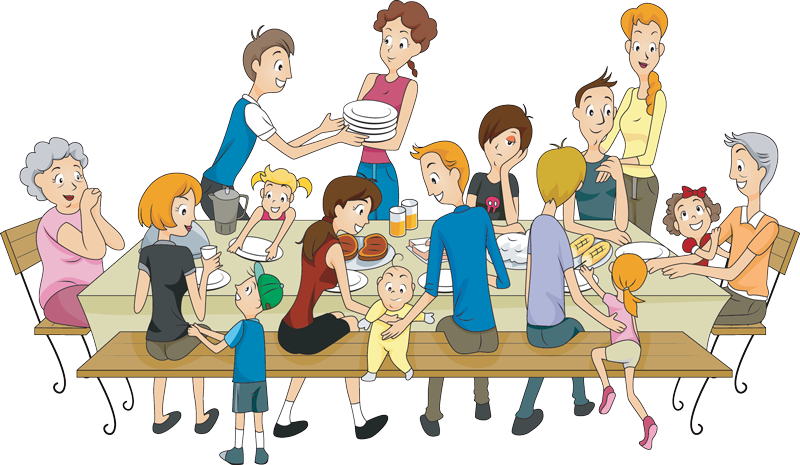Family reunions. The South may not have invented them, but down here we have our share – and more.
Like so much in Dixie, history has a lot to do with how and why families hold reunions. The Old South was culture of extended and elaborated families, scattered not too far but far enough so that seeing each other was not a casual affair. Folks who study this sort of thing have a hard time figuring out just when Southern families began holding reunions, but logic leads to the conclusion that as Southern families spread out across the land and as transportation improved, families began finding ways to assemble on a regular basis.
So families had reunions, get-togethers planned well in advance, held at a place that has meaning for those who attend, publicized so that it draws folks from far away who want to re-knot the tie that binds.
Such gatherings were celebrations of the links that ensnared each member –the bloodlines. Once it was the duty of the matriarch, the Grandmother or the Aunt (even better the Maiden Aunt) to preserve the connections and spell them out for those there.
Or put the links on a chart that reminded author Florence King’s non-Southern father of “kennel papers,” “the stud register,” or “the Book of the Dead.”
There it was, hung on the wall so everyone could see where they came from and, maybe, realize why they are what they are.
“He’s just as bossy as his grandfather was.”
Among the things on display at a reunion – the photographs, the scrapbooks, the family Bible, and such – the most proudly presented and thoroughly enjoyed is the food. Although the distance some folks travel to get there and the location selected for the gathering often requires organizers so have a reunion catered, somehow it just isn’t the same unless someone brings “Aunt Jessie’s yeast rolls” or “Meme’s red velvet cake.”
Of all the senses that stir memory, taste is up there at the top, and since reunions are all about memory, it is understandable that food ranks among the expectations and, often, the disappointments – “it’s good, but not like Mama made.”
The table spread becomes symbolic of what the family was, and what it has become – a big mound of “Uncle Claude’s barbeque” just like he would have fixed it if he was here, up next to a pile of Kentucky Fried Chicken, taken out of the box and put on a platter to fool folks who can’t be fooled. The old and the new, the sacred and the profane, side by side.
So the family gathers, greets, hugs, talks, eats, shares, and when the day is done, goes back to the world where each lives.
But most important, these reunions are a reason, an excuse, to celebrate the institution that has always been at the center of Southern life – the family. A time to thank the Lord that you have one. And, maybe, to feel a little sad for those who don’t.
[hr]
Harvey H. (“Hardy”) Jackson is retired professor emeritus of history at Jacksonville State University whose most recent book is The Rise and Decline of the Redneck Riviera, featured in the January 2013 Alabama Living. His work appears in the Anniston Star and Northeast Alabama Living. He can be reached at [email protected].





